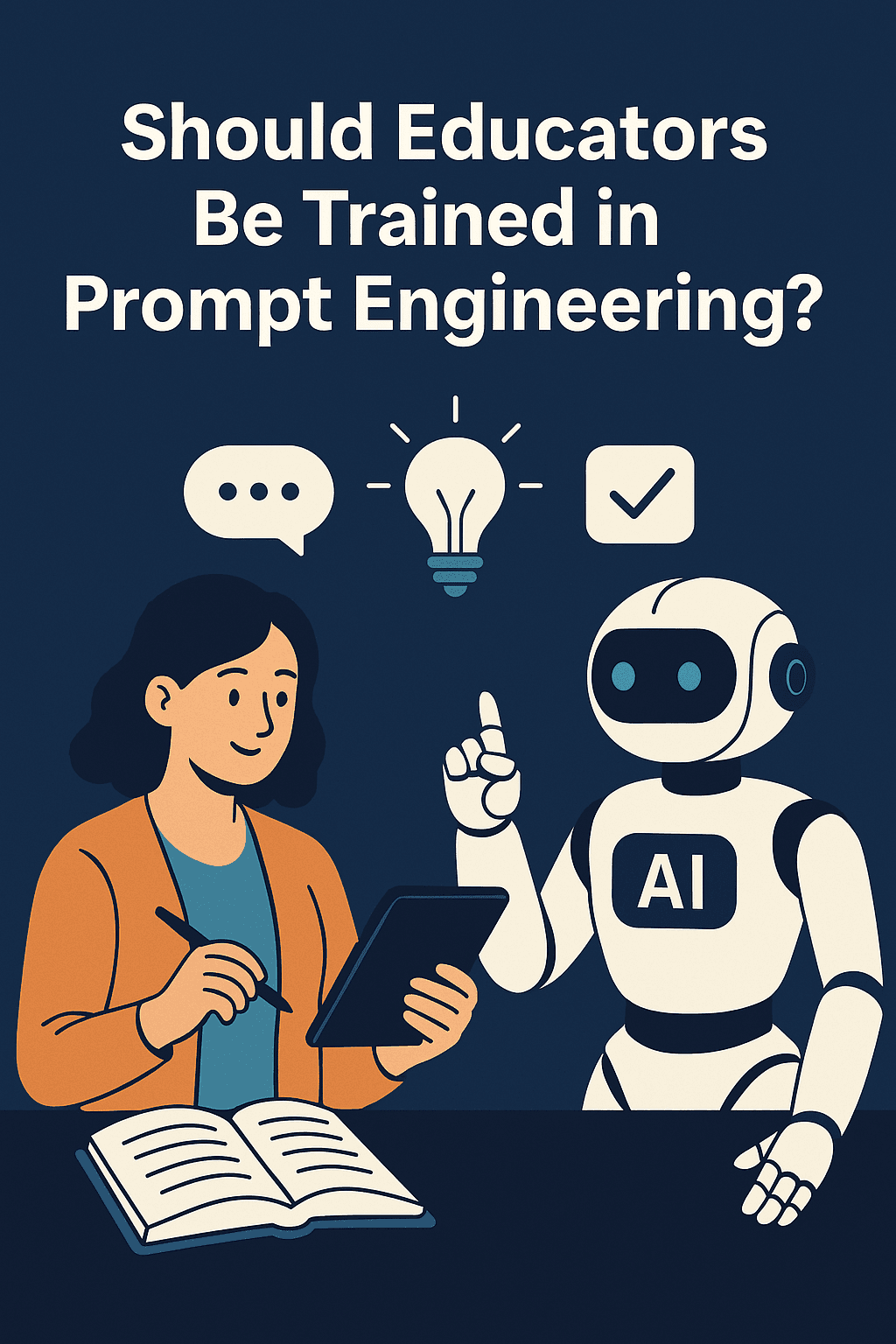
The rapid evolution of artificial intelligence (AI) is reshaping the educational landscape. As generative AI tools like ChatGPT, Claude, Gemini, and Bard become more prevalent, a pressing question emerges: Should educators be trained in prompt engineering? The answer is a resounding yes.
Prompt engineering is the skill of designing and structuring prompts to elicit the most accurate, relevant, and useful responses from AI systems. While this skill is essential for developers, it’s becoming increasingly important for educators who wish to leverage AI effectively in teaching and learning.
Case Studies: A Tool for Change in Social Work
What Is Prompt Engineering?
Prompt engineering involves crafting precise and well-structured inputs to guide AI models in generating desired outputs. Essentially, it’s about asking the right questions in the right way. For educators, this means designing prompts that produce useful lesson plans, assessment questions, feedback, or research summaries from generative AI tools.
For example, an educator could prompt ChatGPT with:
“Generate a 30-minute lesson plan for Year 6 students on photosynthesis, including objectives, key points, activities, and assessment.”
The AI then produces a structured and coherent lesson plan that can be adapted as needed.
Why Should Educators Be Trained in Prompt Engineering?
There are several compelling reasons why educators should be trained in prompt engineering:
1. Enhancing Teaching Efficiency
Prompt engineering can streamline the lesson planning process. Instead of starting from scratch, educators can use AI tools to generate outlines, quizzes, and even differentiated materials within minutes.
Example
A high school biology teacher needs questions for a formative assessment on genetics. By providing a prompt like:
“Create 10 multiple-choice questions on Mendelian genetics for Grade 10 students, including answer keys.”
The AI quickly generates high-quality questions, saving valuable preparation time.
2. Improving Assessment Design
AI tools can assist educators in creating assessments aligned with learning objectives. By mastering prompt engineering, teachers can produce assessment materials that target different cognitive levels of Bloom’s Taxonomy.
Example
A teacher prompts the AI:
“Generate one question for each level of Bloom’s Taxonomy on the topic of World War II.”
The AI responds with questions ranging from basic recall (What year did World War II begin?) to higher-order analysis (Compare the causes of World War II with the causes of World War I.).
3. Supporting Differentiation and Personalisation
Prompt engineering can also be used to create materials suited to diverse learning needs. Educators can prompt AI to produce content at varying difficulty levels, ensuring inclusivity and accessibility.
Example
“Explain the theory of evolution to a 12-year-old student with ADHD, using simple language and visual analogies.”
This tailored response helps teachers provide differentiated learning experiences.
4. Preparing Students for Future AI Integration
By understanding AI through prompt engineering, educators can prepare students for a world where AI tools are commonplace. Teaching students how to engage critically with AI tools will be a vital skill for future employability.
Example
A university instructor uses prompt engineering to demonstrate AI’s potential and limitations in research. Students are asked to generate AI summaries of journal articles and then compare them with human-generated abstracts.
Ethical and Practical Considerations
While the benefits are clear, there are challenges and ethical considerations to address when answering the question: Should educators be trained in prompt engineering?
- Bias Awareness: AI systems can inherit biases from their training data. Teachers need to understand how prompts influence these biases and how to mitigate them.
- Academic Integrity: Encouraging responsible AI use among students is crucial. Teachers should guide learners on the ethical boundaries of AI assistance.
- Data Privacy: Educators must ensure that prompts do not inadvertently expose sensitive or personal student information.
How Can Educators Learn Prompt Engineering?
If the answer to “Should educators be trained in prompt engineering?” is yes, then the next step is to provide accessible training opportunities. Here are some practical approaches:
- Professional Development Workshops
Schools and universities can offer seminars that teach educators how to create effective prompts for lesson planning, assessments, and feedback generation. - AI Literacy Modules
Integrating prompt engineering basics into digital literacy or AI ethics courses ensures that all educators have a foundational understanding of this skill. - Collaborative Learning
Teachers can share successful prompts and best practices through online communities, improving collective knowledge and expertise.
Conclusion
So, should educators be trained in prompt engineering? Absolutely. As AI continues to shape the future of education, prompt engineering is a critical skill that empowers teachers to harness technology effectively. Whether it’s designing differentiated learning materials, creating assessments, or enhancing administrative efficiency, mastering prompt engineering is a must-have skill for the modern educator.
By providing training opportunities and encouraging ethical, creative use of AI, educational institutions can ensure that teachers are prepared for the rapidly evolving landscape of digital learning.
Visit The Case HQ for 95+ courses
Read More:
Case Study as Bridging the Gap in Mental Health Research
The Role of Case Studies in Conflict Resolution
Using Case Studies to Understand Cultural Diversity
The Power of Case Studies in Consumer Behaviour Analysis
The Influence of Case Studies on Corporate Social Responsibility
Case Studies in Cybersecurity: Lessons Learned
Leveraging Case Studies for Community Development
The Rise of Intelligent Tutoring Systems: A New Era in Education
AI and the Future of Assessment: From Standardized Tests to Adaptive Learning
AI in Early Childhood Education: Promises and Pitfalls
How AI is Shaping the Role of Educators in the 21st Century
https://thecasehq.com/essential-guide-should-educators-be-trained-in-prompt-engineering/?fsp_sid=2108
Comments
Post a Comment